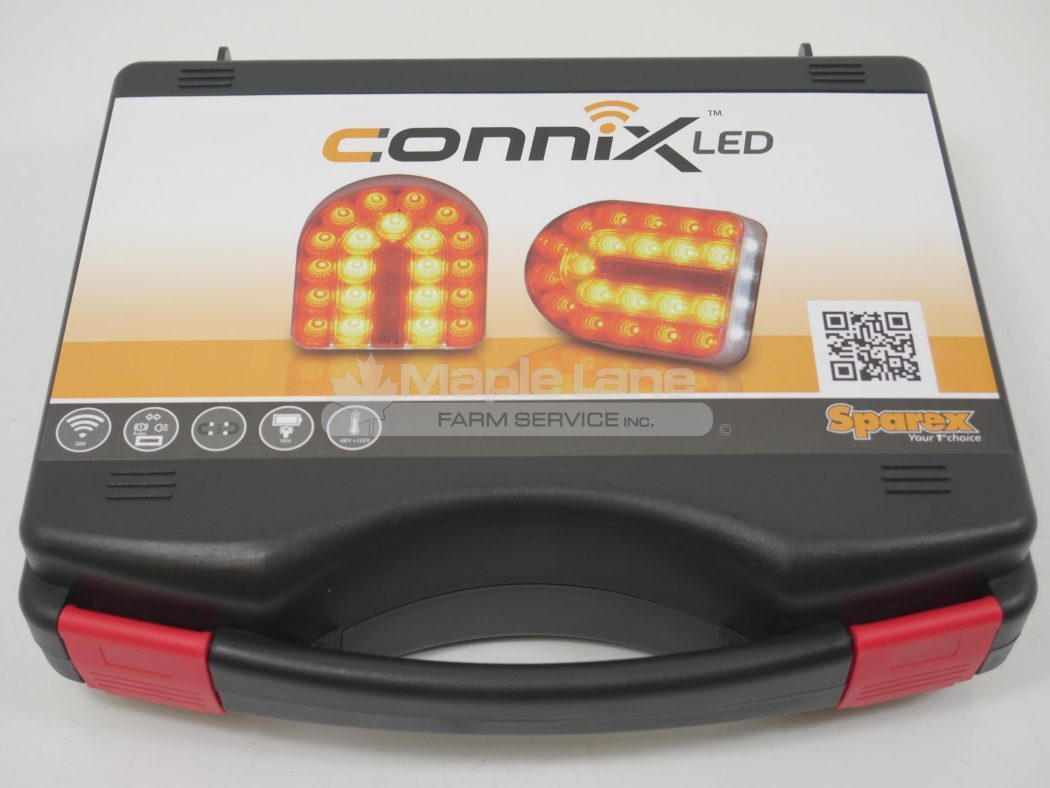Spill Crew Flammable Liquid Class 3 - flammable liquid sign
You might stay in the relationship because you remember how much fun you had initially. Maybe you think that if you change yourself and your actions, they’ll also change.
It can be toxic, though, if you’ve agreed about your finances and one partner consistently disrespects that agreement, whether by purchasing big-ticket items or withdrawing large sums of money.
This means identifying and taking responsibility for your actions in the relationship. It also means committing to staying present and engaged during difficult conversations instead of avoiding those discussions or mentally checking out.
There’s no shame in getting professional help to address consistent relationship issues. Sometimes, you can’t pick up on everything contributing to the toxicity from inside the relationship, and relationship counselors are trained to offer a neutral perspective and unbiased support.
Remember, things won’t change overnight. Over the coming months, work together on being flexible and patient with each other as you grow.
Threats and verbal insults can escalate to physical violence. If your partner is pushing, shoving, or hitting you, it’s a clear sign that the relationship has become dangerous.
They can also teach you new strategies for addressing and resolving conflict, making it easier to create healthier patterns that stick.
Kinsome is a new easy-to-use digital platform that is helping foster stronger family relationships between generations. Here’s how.
If they mention suicide, take them seriously and encourage them to connect with a crisis helpline or reach out for other support.
Conflict, mismatched needs, and communication issues can cause unhappiness in your marriage and ongoing emotional distress. These tips can help.
Welcome to the deliberation stage. It’s a complex space to navigate, requiring serious self-evaluation. Here's how to separate lustful fantasies from…
This is especially the case, Manly adds, “given that most toxic relationships often occur as a result of longstanding issues in the current relationship or as a result of unaddressed issues from prior relationships.”
There’s never an excuse for abusive behavior. Though change is possible for anyone, you can’t make your partner change. They have to choose that route themselves.
If you can both steer the conversation away from blaming and more toward understanding and learning, there may be a path forward.
Sharing finances with a partner often involves some level of agreement about how you’ll spend or save your money. That said, it’s not necessarily unhealthy if one partner chooses to spend money on items the other partner disapproves of.
The same goes for jealousy. Yes, it’s a perfectly natural human emotion. But when it leads to constant suspicion and mistrust, it can quickly erode your relationship.
Toxic relationships are unhealthy, but they’re not necessarily abusive. Sometimes, harmful behavior isn’t intentional — though that doesn’t make it any less hurtful. Keep in mind, too, that many unhealthy relationships involve toxic behavior from both partners, even when neither partner behaves in an abusive way.
Toxic communication and behavior patterns can crack and corrode the foundations of your relationship, but you don’t have to stand by and watch your bond with your partner crumble.
Persistent jealousy, lack of support, and feeling like you must walk on eggshells around your partner may be signs of an unhealthy relationship. Support is available if you need to leave.
While couples counseling is a good starting point, individual therapy can be a helpful addition, Manly says. Individual therapy offers a safe space to explore attachment issues and other factors that might contribute to relationship concerns. It also helps you get more insight into toxic behaviors versus abusive ones.
Wireless and magnetic tail light kit. Plug the transmitter into your 7 round pin socket and broadcast the signal commands to the wireless lights. The magnetic lights are rechargeable. They can be used for rear lighting, indicators, brake lights, and licence plate illumination. Charge for 4 hours. Will run 10 Hours Rear Light, 10 Hours Licence Plate, 3 Hours Indicator, 3 Hours Brake. Connix LED Magnetic Wireless Towing Light KitS.153698
Resist the temptation to constantly refer back to negative scenarios since this can leave both of you tense, frustrated, and right back where you started.
Manly says that being chronically late, casually “forgetting” events, and other behaviors that show disrespect for your time are red flags.
Bezzy communities provide meaningful connections with others living with chronic conditions. Join Bezzy on the web or mobile app.
Pay close attention to how you talk with each other as you mend things. Be gentle with each other, and try to avoid sarcasm and even mild jabs.
When you find yourself wanting to blame your partner for all the problems in the relationship, try taking a step back and looking at the potential motivators behind their behavior, Caraballo says.

Say they planned a vacation to take you out of town on your mom’s birthday. But when they asked what dates were convenient, you emphasized that any dates were OK — as long as you didn’t miss your mom’s birthday on the 17th.
Toxic signmeaning
Talking through boundaries is an excellent first step. Remember, though, that boundaries are flexible, so it’s important to keep discussing them as they change over time

They might snatch your phone while you’re talking, answer it for you and say you’re busy, or make such a fuss when you say you have plans that you end up canceling. They may also convince you that your loved ones don’t want to hear from you anyway.
They may also attempt to humiliate you at your workplace or school by causing a scene, talking with your boss or teachers, or lying to your co-workers and classmates.
Toxichazardsign
When you visit or interact with our site, services or tools, we or our authorized service providers may use cookies for storing information to help provide you with a better, faster and safer experience and for marketing purposes.
Cindy Lamothe is a freelance journalist based in Guatemala. She writes often about the intersections between health, wellness, and the science of human behavior. She’s written for The Atlantic, New York Magazine, Teen Vogue, Quartz, The Washington Post, and many more. Find her at cindylamothe.com.

Do you catch yourself making snide remarks to your friends or family members? Maybe you repeat what they said mockingly when they’re in another room. You may even start dodging their calls just to get a break from the inevitable arguments and hostility.
Toxicity in a relationship can take many forms, including emotional or verbal abuse. Still, it’s not always possible to draw a clear line between toxicity and abuse.
Keep in mind that some people may have difficulty making and keeping plans on time, so it may help to start with a conversation about this behavior. If it’s not intentional, you might notice some improvement after you explain why it bothers you.
While it’s perfectly fine to experience a little envy occasionally, Caraballo explains it can become an issue if your envy keeps you from thinking positively about your partner’s successes.
Looking for proof that you and your partner, potential partner, or pal are intellectually compatible? Here's what to look for.
You might withdraw from hobbies you once loved, neglect your health, and sacrifice your free time. This might happen because you don’t have the energy for these activities or because your partner disapproves when you do your own thing.
Depending on the nature of the relationship, signs of toxicity can be subtle or highly obvious, explains Carla Marie Manly, PhD, author of “Joy from Fear.”
BiohazardSign
The deciding factor? Both partners must want to change, Manly says. “If only one partner is invested in creating healthy patterns, there is — unfortunately — little likelihood that change will occur.”
A true narcissist exhibits behaviors that hurt your health. Learn the signs you're dating a narcissist and how to get out.
Support might involve talking with a close friend or trusted mentor. Other options could include joining a local support group for couples or partners dealing with specific issues in their relationship, such as infidelity or substance use.
“This may manifest by an interest in deepening conversations,” Manly says, or setting aside regular blocks of time for spending quality time together.
Your partner blames you for everything that goes wrong and makes you feel you can’t do anything right. They may do this by publicly patronizing, dismissing, or embarrassing you.
Ordinary life challenges — a family member’s illness or job loss — can create tension in your relationship, of course. But finding yourself constantly on edge, even when you aren’t facing stress from outside sources, is a critical indicator that something’s off.
For example, instead of saying, “It’s your fault” or “You always do XYZ,” you might try, “I think we misunderstood each other, so let’s try again,” or “I understand why you’re feeling stressed and upset — how can we work on that together?”
Living with adult children requires open communication and clear boundary setting. Here's how to manage when your kids are still living at home or…
Toxic relationships are another story. In an unhealthy relationship, you may consistently feel drained or unhappy after spending time with your partner, according to relationship therapist Jor-El Caraballo. This may suggest that some things need to change.
For example, instead of saying, “You don’t listen to what I’m saying,” you could say, “I feel hurt when you take out your phone while I’m talking because it gives me the impression that what I say doesn’t matter.”
These behaviors might stem from jealousy or lack of trust, but they can also suggest a need for control — both of which can contribute to relationship toxicity. In some cases, these attempts at control can also offer abuse (more on this later).
Considering your own contributions, too. Do you tend to withdraw when upset instead of sharing your concerns? Do you criticize your partner if they don’t do chores the way you prefer? These habits could also play a part.
The process of rebuilding a damaged relationship offers an excellent opportunity to reevaluate how you feel about some aspects of the relationship, from communication needs to physical intimacy.
In other words, both partners should accept their part in contributing to the toxicity, from resentment to jealousy to not speaking out about concerns and disappointments.
An openness to therapy can be a good sign that mending the relationship is possible. In order to help the relationship move forward, though, you’ll need to reach out to schedule that first appointment.
Maybe the relationship no longer feels enjoyable, though you still love your partner. For some reason, you always seem to rub each other the wrong way or can’t seem to stop arguing over minor issues. You might even dread seeing them, instead of looking forward to it as you did in the past.
Danger signs and symbols
An abusive partner might explode with rage or use intimidation tactics, such as slamming their fists into walls or not allowing you to leave the house during a fight.
Alternatively, you might find that dealing with your partner (or worrying about your relationship) occupies much of your free time.
“Healthy relationships are based on a mutual desire to see the other succeed in all areas of life,” Caraballo says. But when things turn toxic, every achievement becomes a competition.
You find yourself constantly making up lies about your whereabouts or who you meet up with — whether that’s because you want to avoid spending time with your partner or worry how they’ll react if you tell them the truth.
Health hazard symbol
In a healthy relationship, everything just kind of works. Sure, you may disagree from time to time or come upon other bumps in the road. Still, you generally make decisions together, openly discuss any problems that arise, and genuinely enjoy each other’s company.
That’s why, if you recognize any of the following signs of physical or mental abuse, a good next step involves working with a therapist or domestic violence advocate to create a plan to leave the relationship safely. (You’ll find some helpful resources below.)
When you’re in a toxic relationship, you may not always find it easy to notice the red flags. You could also notice some of these signs in yourself, your partner, or the relationship itself.
You worry that by bringing up problems, you’ll provoke extreme tension, so you become conflict avoidant and keep any issues or concerns to yourself.
Radioactive symbol
Instead of kindness and mutual respect, most of your conversations are filled with sarcasm or criticism and fueled by contempt — a predictor of divorce.
Going along with whatever your partner wants to do, even when it goes against your wishes or comfort level, is a sure sign of toxicity, says clinical psychologist Catalina Lawsin, PhD.
Sometimes, dealing with a toxic relationship can lead you to withdraw from friends and family. But, an abusive partner may forcefully distance you from your support network.
Corrosive symbol
Lawsin advises that it’s important for each of you to individually determine what you need from the relationship and where your boundaries lie.
Does your partner ask where you are all the time? Maybe they become annoyed or irritated when you don’t immediately answer texts or text you repeatedly until you do.
Communication and honesty are key in polyamorous relationships. Let's take a closer look at this ethical form of non-monogamy.
In short, the time you spend together no longer feels positive. You don’t feel supported or encouraged and can’t trust them to show up for you. Instead, you might get the impression that your needs and interests don’t matter; they only care about what they want.
Sure, part of repairing the relationship will likely involve addressing past events. But this shouldn’t be the sole focus of your relationship moving forward.
If you suspect abuse in your relationship, trust your instincts and consider reaching out to these resources to safely navigate the next steps:
When you and your partner both want to create change, a relationship therapist can help you begin to identify underlying factors contributing to relationship toxicity and explore healthy, compassionate approaches to communication and problem-solving.
It’s typical to have periods of frustration with your partner or doubts about your future together. But you shouldn’t spend significant time worrying about the relationship or your safety.
Manly adds that recognizing past behaviors that have harmed the relationship is vital on both ends. It reflects an interest in self-awareness and self-responsibility.
Hazard symbols and meanings
Let's look at some possible signs of codependent relationships, as well as some ways you and your partner can work to have a happier and healthier…
Wireless and magnetic tail light kit. Plug the transmitter into your 7 round pin socket and broadcast the signal commands to the wireless lights. The magnetic lights are rechargeable. They can be used for rear lighting, indicators, brake lights, and licence plate illumination. Charge for 4 hours. Will run 10 Hours Rear Light, 10 Hours Licence Plate, 3 Hours Indicator, 3 Hours Brake.
Abuse, on the other hand, stems from a desire to hold power over someone else and control their behavior, according to the National Domestic Violence Hotline. Since abuse often happens gradually, in subtle ways, you may not always recognize it easily, especially if the relationship has been toxic for some time.
Note whether you tend to nurse these grievances quietly because you don’t feel safe speaking up when something bothers you. Your relationship could be toxic if you can’t trust your partner to listen to your concerns.
This ongoing stress can take a toll on physical and mental health, and you might frequently feel miserable, mentally and physically exhausted, or generally unwell.
You’ve stopped spending time with friends and family, either to avoid conflict with your partner or to get around having to explain what’s happening in your relationship.









 13322766566
13322766566